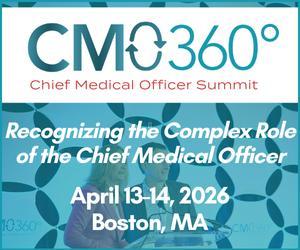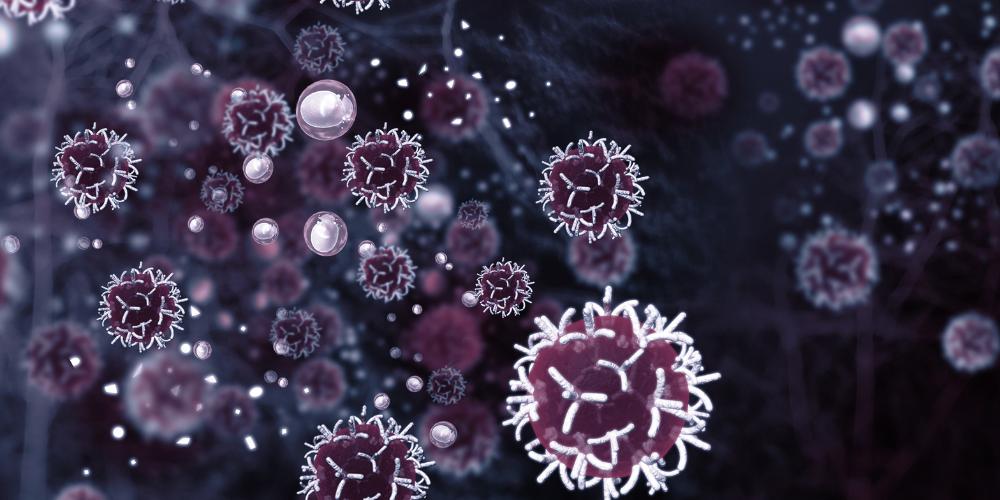Blocking GDF-15 to Conquer Immunosupression and Enhance Treatment Efficacy
Christine Schuberth-Wagner, PhD, MBA, Chief Scientific Officer, CatalYm GmbH, is focused on the role of Growth Differentiation Factor-15 in cancer, developing a monoclonal antibody to reverse GDF-15-caused immunosuppression.

What is important about the role of Growth Differentiation Factor-15 in cancer?
CatalYm has identified GDF-15 as a potent local immunosuppressor fostering immunotherapy resistance in cancer. Our research showed that GDF-15 acts as a versatile tool for tumors in obstructing successful antitumoral activity at various steps of the immune response process, including antigen presentation, immune cell activation and their migration and infiltration into the tumor.
It contributes to the development of immunoresistance against current standard-of-care treatments such as checkpoint inhibitors or chemotherapy. We also know GDF-15 is an important factor in feto-maternal tolerance and a mediator of nausea, anorexia and food aversion in different diseases, including hyperemesis gravidarum and cancer.
"Our research showed that GDF-15 acts as a versatile tool for tumors in obstructing successful antitumoral activity at various steps of the immune response process."
What can you tell us about the monoclonal antibody you’re developing to combat the impact of GDF-15?
The monoclonal antibody we developed, visugromab, reverses that immunosuppression and reinstates an efficient anti-tumor response. It also mitigates the GDF-15-induced symptoms of nausea, emesis, and weight loss. Not only does that enhance the patient’s health-related quality of life, but it can also potentially improve the effectiveness of cancer therapies by prolonging treatment duration and tolerance of clinical treatment doses.
Also by using a modality that has been extensively studied and de-risked, we can minimize potential complications and maximize the likelihood of clinical success. We also want to gain further insights into the underlying biology of GDF-15 in the context of cancer to inform our clinical programs for visugromab, including biomarker identification for patient stratification.
How does focusing on GDF-15 impact attempts for other cancer treatments?
GDF-15 expression is increased in over 60% of existing cancers. Also, because it is a stress-induced cytokine, immunotherapies, genotoxic and cellular stress inducers like antibody-drug conjugates, targeted therapies, chemotherapy, and irradiation are likely to further augment the expression of GDF-15 and impede the success of those treatments.
Therefore, GDF-15 inhibition could improve treatment success of a broad range of standard-of-care therapies by preventing the acquisition of resistance.
What will become possible next if your work succeeds?
In our current Phase 2 study, we aim to investigate the impact of visugromab on treatment efficacy, response duration and patient well-being when combined with chemoimmunotherapy. These findings will serve as a foundation for addressing therapy-induced resistance mediated by GDF-15, which we believe poses a significant challenge across different therapeutic classes, including approaches currently in advanced stages of development. If our ongoing program proves successful, we anticipate that it will augment the effectiveness and durability of a range of approved standard-of-care treatments and potentially also enable upcoming novel regimens.
This, together with the reduction of GDF-15-mediated exacerbating side effects such as anorexia or cachexia, provides the opportunity to ultimately improve the outcomes and well-being of a broad patient population with so far unfavorable prognosis and/or limited options.
"If our ongoing program proves successful, we anticipate that it will augment the effectiveness and durability of a range of approved standard-of-care treatments and potentially also enable upcoming novel regimens."
How does your work contribute to the larger puzzle of conquering cancer through combinations?
Immunotherapy and combination therapies involving checkpoint inhibitors have demonstrated remarkable clinical responses in certain cancer patients but 90% of metastatic cancer patients succumb to their disease due to either primary or acquired resistance.
Therefore, overcoming resistance necessitates combining drugs with distinct mechanisms of action to minimize the risk of resistance. However, it’s necessary to effectively manage the side effect profiles associated with these complex combination strategies.
With its favorable safety profile, long-lasting and deep remissions, and orthogonal MoA, we believe that visugromab holds promise as a potent combination partner to multiple different types of therapy.
What is your career advice, especially for young women who are entering science careers?
First, one key aspect is to pursue what you are truly passionate about. By doing what you love the most, you will find motivation and fulfillment in your work. It is essential to talk about your achievements and highlight them, as this allows others to recognize your accomplishments. If you don't advocate for yourself, others may not acknowledge your contributions.
Second, transitioning from a scientist to a manager often means making impactful decisions with limited data. Embrace this challenge and be willing to step out of your comfort zone. Taking on new responsibilities and tasks that you have never done before is an opportunity for personal and professional growth.
Third, communication is vital in any career, and science is no exception. Engage with others, seek advice, and don't hesitate to ask for help. No one expects you to know everything, but they do expect you to reach out to the right people for guidance and support.
"I hold a firm conviction regarding the formidable potential of our immune system to combat cancer. Ultimately every therapeutic approach results in immunogenic cell stress and death, contributing to the induction of anti-tumoral immune responses. This is essential to eradicate residual primary tumor cells and micrometastases to achieve disease control."
What made you passionate about entering the field?
During my time in school, I realized that I want to improve people’s lives and contribute to novel therapeutics through scientific research. In addition, witnessing my grandfather's prolonged battle with prostate cancer and supporting my grandmother throughout her fight against breast cancer have left a lasting impression on me.
These personal experiences made me realize that cancer is not solely a disease that affects patients but also profoundly impacts their families. The desire to contribute to the improvement of cancer diagnosis, therapies and the overall well-being of patients became my driving force.
Do you have any final thoughts about the power of immuno-oncology?
I hold a firm conviction regarding the formidable potential of our immune system to combat cancer. Ultimately every therapeutic approach results in immunogenic cell stress and death, contributing to the induction of anti-tumoral immune responses. This is essential to eradicate residual primary tumor cells and micrometastases to achieve disease control.
Understanding resistance mechanisms to standard-of-care treatments, in combination with precise diagnosis, patient stratification and personalized treatment strategies, is very important to guide the selection of combination therapies. We have to address these issues to achieve lasting success in the fight against cancer.










